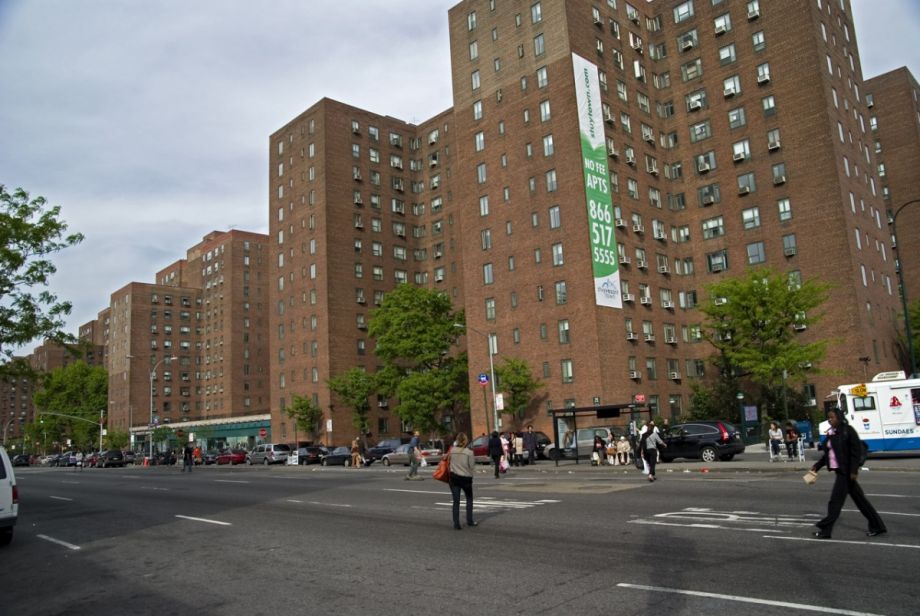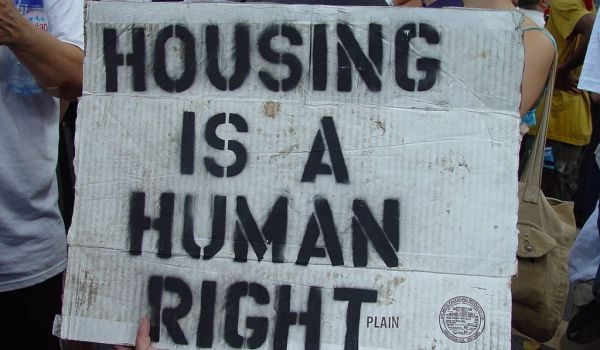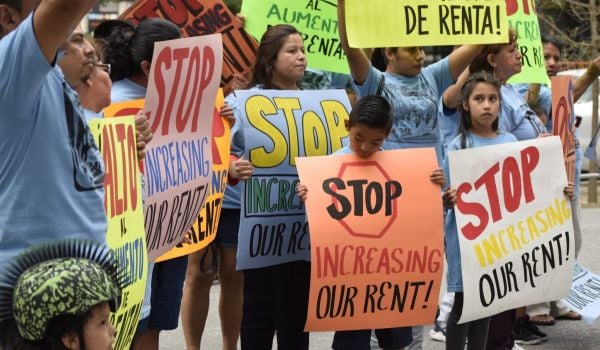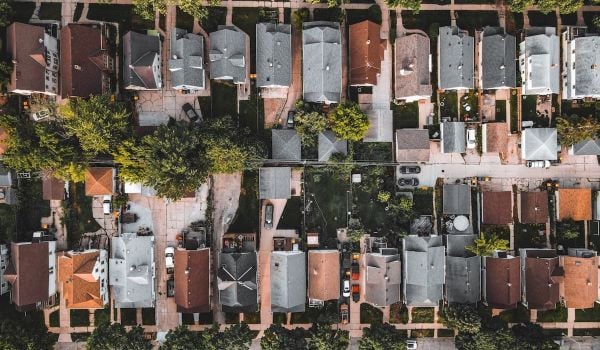Discrimination Against Voucher Holders Spurs Lawsuit in New York
The Housing Rights Initiative, a nonprofit watchdog group, is suing 88 landlords and brokerage firms for discriminating against prospective tenants who use “Section 8” Housing Choice Vouchers to search for apartments in New York City, according to a report in the New York Times. The group secretly recorded conversations with brokers and landlords over the last few years and found a number of instances in which voucher-holders were explicitly prevented from renting units, in violation of local and state laws, the report says.
“The suit recounts dozens of conversations recorded by investigators, who posed as prospective tenants, that detail the extraordinary challenges faced by renters using Section 8, essentially a guaranteed rent check from the federal government that has been a pillar of rental support for many American families,” the report says.
More than 125,000 households, mostly Black and Latino families, use Section 8 vouchers in New York City, according to the report. New York City and New York state both have laws explicitly banning “source of income” discrimination, or discriminating against someone because they use vouchers.
But housing advocates report that discrimination against voucher holders is widespread in many cities, limiting the effectiveness of the program. In some places, as Next City has reported, landlords specifically cater to voucher holders, which also limits the effectiveness of the program by funneling tenants into certain neighborhoods. The lawsuit filed by the Housing Rights Initiative in New York names a number of brokerage firms and landlords, and seeks monetary damages and an end to discriminatory practices, according to the report.
“Our goal here is simple,” Aaron Carr, the founder and executive director of the Housing Rights Initiative, told the Times. “It’s to get real estate companies to abandon their discriminatory housing practices and follow the damn law … They are the gatekeepers of housing and get to decide where families live, where they work and where children go to school.”
Chicago Evaluates Racial Impact of Housing Tax Credit Allocations
The City of Chicago will evaluate how its use of federal Low Income Housing Tax Credits affects communities using a racial-equity lens from now on, according to a press release from the Chicago Department of Housing. The Department of Housing has committed to producing a Qualified Allocation Plan, which set out the criteria for how and where the LIHTCs can be used, every two years, and this is the first year that the Department has produced a Racial Equity Impact Assessment to accompany the Qualified Allocation Plan, according to the release. The REIA is “the department’s own evaluation of its tax credits over the past 20 years, as well as a structure for ongoing examination and accountability through a racial equity lens of itself and those involved in the development, construction and management of LIHTC units,” according to the release. It will “inform how, where and to whom the department allocates tax credits,” with the goal of creating housing and wealth-building opportunities in historically marginalized communities.
“With Chicago’s long history of institutionalized racism and segregation, we are very aware of the need to examine our work and be accountable for our outcomes,” Chicago Housing Commissioner Marisa Novara said, according to the release. “We commit to examining the results of our work by race, and based on what we learn, adjusting accordingly. Repeatedly. Given the long role that government has played in creating and maintaining segregation and inequities by race, this is our work to do.”
The first REIA recommends creating opportunities for developers of color to benefit from the LIHTC allocations; creating housing production targets for “specific subpopulations based on need;” ensuring that tenants are not screened out of housing opportunities based on credit scores, criminal backgrounds, and past evictions; promoting accessibility for people with disabilities; and ensuring that LIHTC projects address the mental-health needs of their residents, among other recommendations.
“Racial equity must be at the core our efforts to mend and move forward from our city’s history of housing discrimination and displacement of residents of color,” Mayor Lori E. Lightfoot said, according to the release. “With this REIA, we will be able to course correct housing strategies to ensure these residents will still have access to affordable housing resources and any other community benefits well after projects are completed.”
Public Housing Work Honored with Pritzker Prize in Architecture
A pair of French “anti-starchitects” known for working on public housing, and preserving both existing buildings and the associated “social fabric” of their surrounding communities, received the 2021 Pritzker Architecture Prize, according to a report in the Los Angeles Times. The prize, one of the highest honors in the architecture world, was given to Anne Lacaton and Jean-Philippe Vassal for work with their firm Lacaton & Vassal. In 2017, tasked with renovating a social housing development in Bordeaux, the group “upgraded the existing 530 units with garden terraces that expanded the size of the dwellings and increased access to fresh air and sunlight — all without displacing a single tenant,” according to the report.
“The renovation transformed apartments that once had all the charm of dour Modernist cells into places where light and air could circulate,” the report says. “More significantly, the prefabricated terrace modules could be speedily installed, allowing everyone to remain in place while the work was done.”
In its affordable-housing work, the firm has “challenged the notion that generous space and limited funds are incompatible,” the New York Times wrote in a separate report. Their approach to public-housing renovations shows that “improvements can be affordable and uplifting while still remaining public — something the U.S. has yet to try,” Bloomberg CityLab reported. The Pritzker Prize jury also cited the group for its environmental ethic.
“The notion of belonging and being accountable to a larger whole involves not only fellow humans but the planet in general,” the jury wrote. “From very early on, Anne Lacaton and Jean-Philippe Vassal have consistently expanded the notion of sustainability to be understood as a real balance between its economic, environmental and social pillars.”
This article is part of Backyard, a newsletter exploring scalable solutions to make housing fairer, more affordable and more environmentally sustainable. Subscribe to our weekly Backyard newsletter.

Jared Brey is Next City's housing correspondent, based in Philadelphia. He is a former staff writer at Philadelphia magazine and PlanPhilly, and his work has appeared in Columbia Journalism Review, Landscape Architecture Magazine, U.S. News & World Report, Philadelphia Weekly, and other publications.
Follow Jared .(JavaScript must be enabled to view this email address)


















